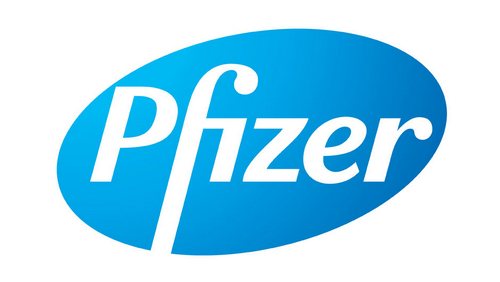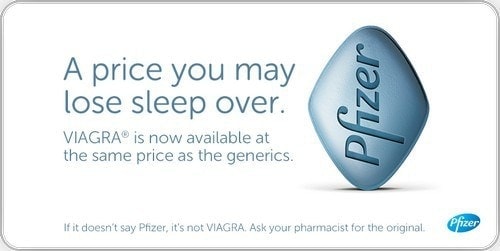The Marketing mix of Pfizer analyses the 4Ps of Pfizer, including the Product, Price, Place, and Promotions. Pfizer is associated with the pharmaceutical industry and deals in the healthcare segment. It is a publicly traded company of American origins. Pfizer was founded in 1849 by its founders, Charles F. Erhart and Charles Pfizer. It is ranked in fourth position among the top ten pharmaceutical companies worldwide. Some of its competitors are as follows-
- Johnson & Johnson
- Amgen
- Bristol-Myers Squibb
- AstraZeneca
- Abbot Laboratories
- Sun Pharma Industries
- Novartis
- Merck
About Pfizer
- Type: Pharmaceutical company
- Industry: Healthcare
- Founded: 1849
- Founders: Charles Pfizer and Charles Erhart
- Headquarters: New York City, New York, United States
- Area served: Worldwide
- Current CEO: Albert Bourla
- Number of employees: Over 90,000
- Major products: Vaccines, cancer drugs, and other prescription medications
Table of Contents
Pfizer Product Strategy
Pfizer is one of the largest pharmaceutical companies in the world. It is research-based and manufactures, develops, markets, and discovers healthcare goods. Its operations are divided into nine divisions: Capsuget, Animal Health, Nutrition, Consumer Healthcare, Established Products, Emerging Markets, Oncology, Specialty Care, and Primary Care.
Today, Pfizer, a global pharmaceutical giant, offers a diverse product mix that spans a wide range of therapeutic areas and healthcare needs. The company’s product portfolio reflects its commitment to innovation, patient care, and addressing various medical challenges.
The new Product Mix of Pfizer in 2023 is as follows (Source).
- Prescription Medicines: Pfizer’s core business is developing and marketing prescription medications. These drugs cover various therapeutic areas, including cardiology, oncology (cancer treatment), neurology, endocrinology, and immunology.
- Vaccines: The company is a critical player in the vaccine market, providing vaccines for various infectious diseases. Notably, Pfizer developed one of the first COVID-19 vaccines in collaboration with BioNTech.
- Over-the-counter (OTC) Medications: Pfizer offers a range of non-prescription drugs for common health issues, such as pain relief, digestive health, and nutritional supplements. These products are available to consumers without the need for a prescription.
- Oncology Treatments: A significant part of Pfizer’s portfolio is dedicated to oncology, including treatments for various types of cancer. These products often represent cutting-edge medical research and targeted therapies.
- Biopharmaceuticals: Pfizer invests heavily in biopharmaceuticals, which include a range of biological drugs and therapies derived from living organisms. These products are used in the treatment of complex diseases and conditions.
- Animal Health Products: Although Pfizer spun off its animal health business into a separate company called Zoetis, it previously included veterinary products such as vaccines, medicines, and supplements for various animals.
- Rare Disease Treatments: Pfizer addresses rare diseases with limited treatment options. This includes developing therapies for conditions that affect a small percentage of the population, often involving specialized research and development efforts.
- Inflammation and Immunology Drugs: The company produces medications to treat chronic inflammatory and autoimmune diseases, focusing on developing therapies that improve the quality of life for patients with these conditions.
- Antibiotics and Anti-Infectives: Pfizer also has a range of products for infectious diseases, including antibiotics and antiviral drugs. These products are crucial in combating common and emerging infections.
Pfizer Place Strategy
Pfizer is a global company in one hundred eighty international markets like Hungary, Mexico, Spain, Nigeria, Switzerland, New Zealand, Australia, Colombia, Ecuador, Angola, and Ireland. Its world corporate headquarters base is in New York City, and its research is at Groton in the United States. Its offices are in the United Kingdom, Puerto Rico, Panama, Mexico, Cuba, Canada, Brazil, and Belgium. Its medical research laboratory was earlier in New York City and, in the year 1960, was shifted to Groton.
Other research units are at Cambridge and Sandwich in the United Kingdom, St. Louis in Missouri, Kalamazoo in Michigan, La Jolla and South San Francisco in California. Its widespread distribution channel and product include a strong marketing and sales infrastructure and a trained and capable workforce of more than 110,000 employees.
Here’s the place strategy of Pfizer.
- Global Manufacturing and Distribution Network: Pfizer operates a vast network of manufacturing facilities and distribution centers worldwide. This extensive infrastructure ensures the efficient production and delivery of pharmaceuticals and vaccines to various global markets.
- Partnerships with Healthcare Providers and Institutions: Pfizer collaborates closely with healthcare providers, hospitals, and clinics to supply its pharmaceutical products. These partnerships are essential for making its medications accessible to patients and gaining insights into evolving healthcare needs.
- Direct-to-Pharmacy Distribution in Select Markets: Pfizer employs a direct-to-pharmacy distribution model in some markets, bypassing traditional wholesalers. This approach helps better manage the supply chain and maintain the integrity of its products.
- Online and Digital Platforms for Information and Engagement: Recognizing the importance of digital channels, Pfizer uses online platforms to provide product information, medical education, and patient support. This strategy enhances its reach and engagement with both healthcare professionals and patients.
- Strategic Presence in Emerging Markets: Pfizer actively pursues growth opportunities in emerging markets, addressing the growing demand for healthcare solutions in these regions. This involves tailoring its product offerings and distribution strategies to meet local healthcare needs and regulatory environments.
Pfizer Pricing Strategy
At the end of the financial year 2015, Pfizer declared its revenues at 48.85 billion dollars and net income at 7.74 million. It is a multinational organization and targets large business entities and operators as its target customers. Pfizer has a multistep pricing system that undergoes several steps to determine a specific price option. It is a complex analysis and depends on risks, benefits, competitive drugs, and doctors’ sentiments. Pfizer is determined in its efforts towards scientific innovation and development strength. It has recorded unprecedented commercial success in its ventures. The company is determined to make a difference in society and humanity because of its endeavors. Hence, it has a variable pricing strategy that depends on markets and competitive dynamics in the pharmaceutical industry.
Pfizer’s pricing strategy in the pharmaceutical industry is a sophisticated blend of market analysis, patient access considerations, brand name, and innovation value. Here’s an expert look at their approach:
- Value-Based Pricing for Innovative Medications: Pfizer often employs value-based pricing for its innovative drugs, especially in areas like oncology and rare diseases. Prices are set based on the therapeutic value, clinical benefits, and the potential to improve patients’ quality of life or provide a cure, aligning the price with the medication’s perceived value.
- Tiered Global Pricing for Broader Accessibility: Understanding the diverse economic landscapes across global markets, Pfizer implements tiered pricing. This means adjusting drug prices to different countries’ economic statuses and healthcare systems, ensuring broader accessibility while maintaining commercial viability.
- Premium Pricing for Breakthrough Therapies: For breakthrough drugs or vaccines, particularly those addressing unmet medical needs or representing significant medical advancements (like the COVID-19 vaccine), Pfizer may adopt a premium pricing strategy. This reflects the high R&D investment and the substantial impact of these drugs.
- Dynamic Pricing in Response to Market Conditions and Competition: Pfizer’s pricing is dynamic and adapts to market changes, including patent expirations, entry of generics, and competitive pressures. This flexibility allows the company to remain competitive and ensure market share in various therapeutic categories.
- Contractual Agreements with Insurers and Governmental Bodies: Pfizer negotiates prices with insurance companies, government health programs, and other payers. These negotiations often involve rebates and discounts from the list prices, making the drugs more affordable to patients and aligning with the payer’s budget constraints.
- Patient Assistance Programs: Recognizing the importance of affordability, Pfizer offers assistance programs to provide medications at reduced or no cost to qualifying patients. This not only helps in making drugs more accessible but also enhances the company’s image as a socially responsible entity.
- R&D Cost Recovery and Profitability Considerations: Pricing strategies also reflect the need to recover substantial R&D investments and fund future research. This ensures continued innovation and sustainability in developing new treatments.
Pfizer Promotion Strategy
Pfizer has a strong brand recall and has adopted a strong and successful marketing strategy and campaigns. It has launched ads in several medical journals to garner maximum brand awareness and visibility. Pfizer is aware of its responsibility towards nature and society. It has cut down its greenhouse emissions by a margin of 20% and is committed to an additional 20% reduction. It is a member of the U.S. Global Leadership Coalition that offers to fund American development and humanitarian and diplomatic efforts. Fluconazole, the anti-fungal drug, is provided free of cost to non-government and government organizations in developing countries that have more than 1% of the population suffering from HIV/AIDS.
It has allied with GAVI Alliance to offer an anti-pneumococcal vaccine of 740 million doses to 41 developing countries at discounted prices. At the year-end of 2012, Pfizer announced affordable access to its injectable contraceptive in developing countries for nearly three million women. The company has received several awards and recognition, including Most Respected MNC and Multinational Pharmaceutical Company of the Year.
Some Recent Video ads and Print ads for Pfizer are:
Liked this post? Check out the complete series on Marketing Mix


Good